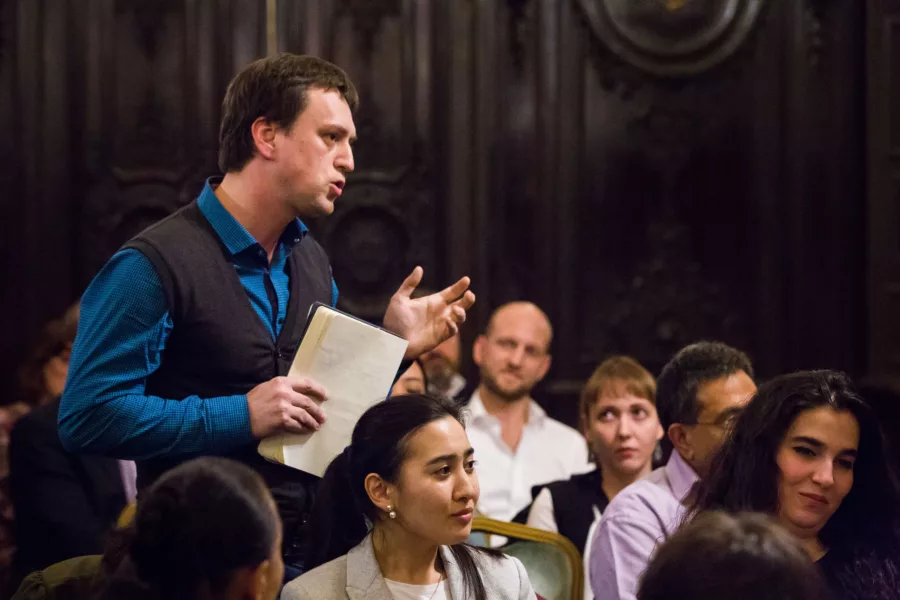Post-legislative scrutiny: a step towards accountable policing in Kyrgyzstan

The Kyrgyz Parliament recently adopted a new methodology for post-legislative scrutiny, meaning that MPs will be able to provide evidence-based parliamentary oversight more effectively. The new method allows lawmakers and civil society to analyse the effectiveness of laws that have been enacted and ensure that new laws are working in practice in the way that they were intended. This development is in no small part down to Timur Shaikhutdinov (JST 2018, Kyrgyzstan) and his colleagues and is a significant step in their goal of of reforming policing in Kyrgyzstan.
Timur is the co-chair of the public association ‘Civic Union’ and coordinates a national network of 28 civil society organisations throughout Kyrgyzstan called the ‘Civic Union For Reforms and Results’. The Civic Union promotes responsiveness and accountability in the security sector, primarily by supporting reform of the Kyrgyz police bodies and the adoption of new approaches to community policing, crime prevention and human rights in the police. Timur has also authored numerous studies in these fields, including recommendations for Government, Parliament and other stakeholders.
Timur’s Action Plan during his JST Fellowship Programme was about developing and advocating for an effective methodology for proper parliamentary oversight in the field of public security and law enforcement. In the UK, Timur spent time with both policing specialists to discuss wider reform strategies and with parliamentary oversight and procedures experts to understand the details of how post-legislative scrutiny works in the UK. Timur made a good connection with one of the clerks at the House of Commons and received useful advice and feedback on the methodology that he went on to develop back in Bishkek.
Timur exceeded his own expectations of what he would be able to achieve: the Civic Union’s draft methodology was accepted by Parliament and the organisation was asked to join a committee to test the methodology on two existing laws. This led to a revision of legislation and policy in the field of crime prevention and combatting domestic violence and, as a result, the Ministry of Interior embarked on a process of developing a new law and policy outline on crime prevention. Timur was been asked to become the Deputy Head of the Interagency Working Group that is responsible for its design.
Timur says the “British expertise was instrumental in the process of developing the Kyrgyz methodology, but the impact of my Action Plan exceeded my expectations, because I managed to develop close collaboration and communication with MPs, mobilise an informal civil society coalition and ensure the buy-in of the international community.”
JULY 2020
